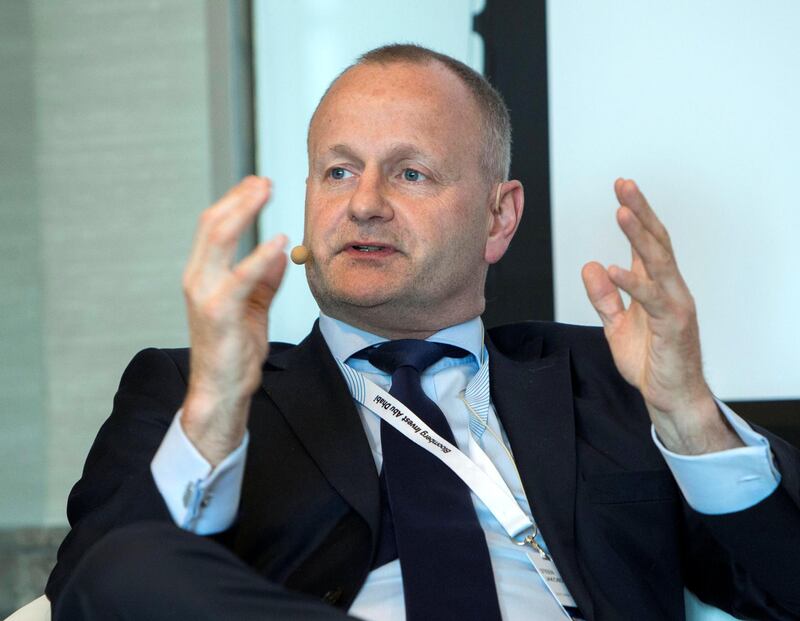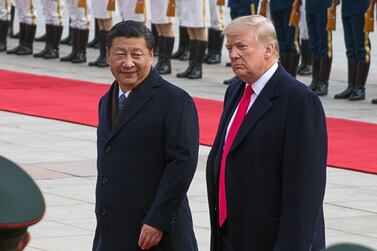The World Trade Organization could fall apart at the next G20 meeting in Japan as the US continues to deny ratifying WTO judges, rendering the global body ineffective and negatively impacting the global economy, according to Denmark's Saxo Bank.
“You are going to have very clear signs when [the] G20 in Japan happens,” said Steen Jakobsen chief investment officer of Saxo Bank. “If you look at the US in terms of its multilateral agreement, they are in disagreement about everything ... there’s the risk that WTO breaks down during the negotiations in Tokyo.”
The WTO is the only global international body dealing with the rules of trade between nations. At its heart are the agreements, negotiated and signed by the bulk of the world's trading nations and ratified by their parliaments. The body is responsible for settling the global trade disputes via its appellate system.
That system is under threat as the US, the world’s biggest economy, has refused to ratify appointments of judges whose terms have ended, ever since Donald Trump took control of the White House. Mr Trump has campaigned against the WTO, saying it was "unfair' towards the US and threatening to withdraw Washington from it. The US is now facing a number of disputes at the WTO against Mr Trump's trade policies, which include global levies on steel and a tariff war with China, the world's second largest economy.
The US refused to endorse the reappointment of a judge in September 2018, which brought the number of judges down to three – the minimum required for the system to work. The judicial system could collapse if a judge steps down or recuses themselves for legal reasons.
The G20 ministerial meeting on trade and digital economy is scheduled to be held in Tokyo on June 8-9, which will also discuss issues related to the WTO and its effectiveness.
If the WTO fails and loses its ability to settle trade disputes, it will adversely impact global trade, which has already slowed even before Mr Trump started a trade war with the US's North American, European and Asian partners, Mr Jakobsen, who is also the chief economist of the bank, noted.
World trade shrank by 0.3 per cent in the fourth quarter of 2018 and is likely to grow by 2.6 per cent this year, slower than 3 per cent growth in 2018 and below a previous forecast of 3.7 per cent, the WTO said last month.
Earlier this month, the International Monetary Fund revised its global growth forecasts for this year for the third time in six months due to a slowing Chinese economy and persistent trade tensions between China and the US. The global economy is projected to decelerate to 3.3 per cent in 2019, down from the 3.5 per cent the IMF had forecast for 2019 in January.
“I don’t see why they [the US] want to do it [damage WTO] but they clearly want to. If that happens, everyone would have to go back to bilateral trade agreements, which is exactly what the US is trying to pursue,” Mr Jakobsen said. “I don’t think the US administration realises how complicated it is to unwind all of the multilateral pacts.”
The chances of the WTO's failure are further stoked by increasing frustration of Chinese policy makers over the ongoing trade war, he said.
“From my Chinese sources, from the people who are at the table, it is very likely. They are boycotting the whole process because no ruling can be made as there are no judges to take the cases,” Mr Jakobsen said. “So the process has already stopped and that fact means that the world is already in a defacto [phase of] close down of the WTO.”
Saxo, in which Chinese car maker Geely built a majority stake for about $800 million, is unfazed by the gloom of politics and is on the lookout for acquisitions. The bank which earns most of its revenues from online trading platforms, acquired Netherlands-based BinkBank which gave it about 70,000 clients.
“We have been growing dramatically,” he said. “We are in an expansion mode and we have seen double digit growth in client numbers, he said.
Saxo’s global portfolio of business has expanded by about 8 per cent to 10 per cent, while its Middle East and North African portfolio accounts for about 5 per cent to 8 per cent of its assets and returns.
“We would love to double our impact in the region," Mr Jakobsen said. "There is a deepening of the bond market and opening of [equity] markets. If there’s ever a time for us to be aggressive in terms of strategy to grow the number of clients, it is now.”








